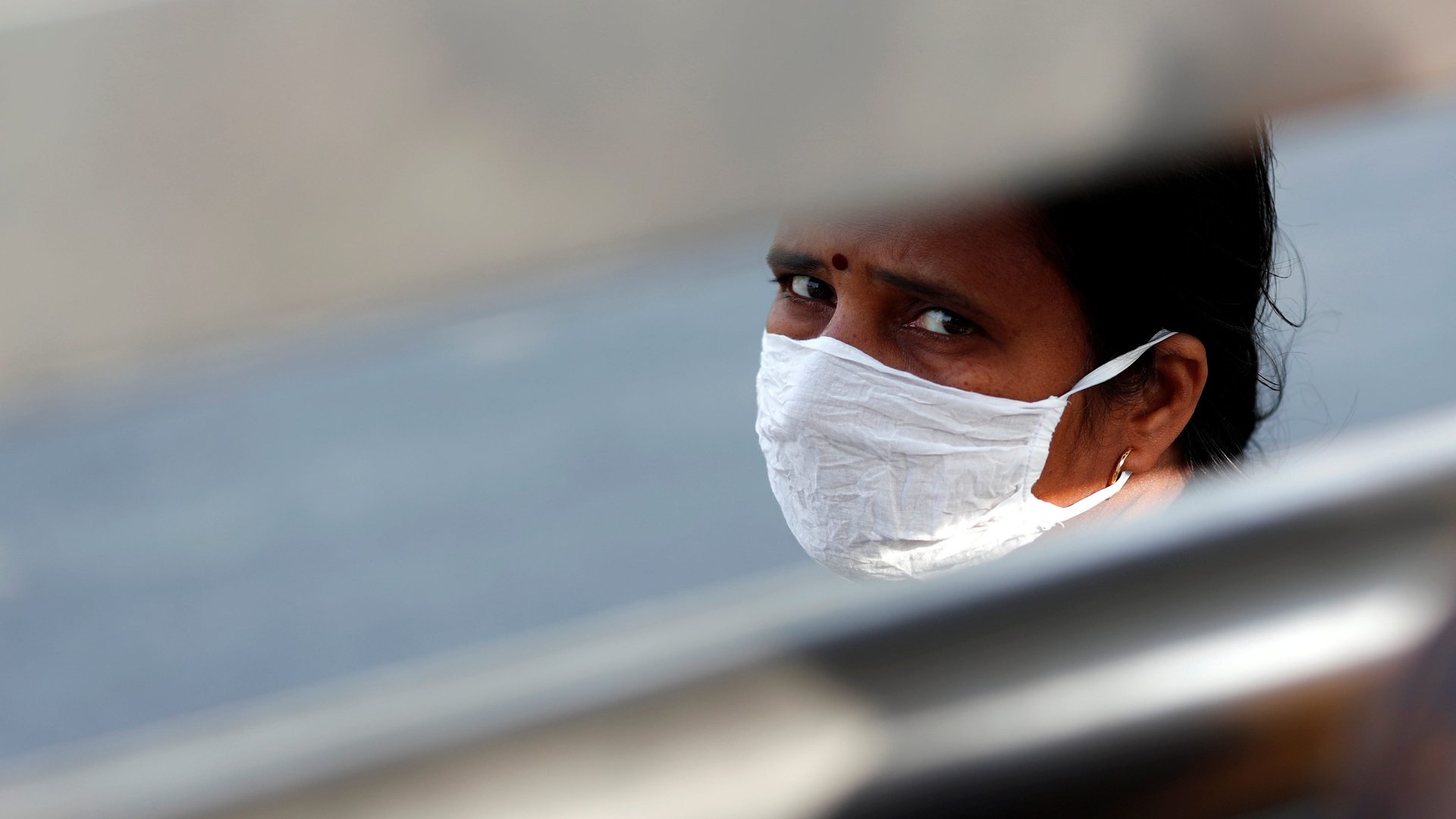Everyone’s advocating cotton masks. But how do you really take care of them?
As masks become a reality of the post-Covid-19 world, cotton masks are fast gaining provenance.


As masks become a reality of the post-Covid-19 world, cotton masks are fast gaining provenance.
They are breathable, can be made at home from scrap fabric, and can be reused multiple times. India’s top ministers and public officials, including prime minister Narendra Modi, have been seen sporting different variants of these masks. And as India’s workforce gradually goes back to work, these could fast become a staple.
But just like for masks of various kinds, one first needs to know what a cotton mask really accomplishes. “I think people need to understand that cotton masks are more about preventing oneself from spreading coronavirus than about catching it,” explains Ayushi Gudwani, founder of Fable Street, a women’s workwear brand that is now also making cotton masks.
With a variety of face protective covers available, there is a right mask for everyone, and the right way to care for them.
Right one, right now
The main purpose of cotton masks is to save surgical masks and N95 masks for frontline healthcare and other workers. A cotton mask is primarily meant for those not infected with coronavirus, or those who may be asymptomatic carriers. “If you have comorbidities or you fall in the at-risk age bracket, then a surgical mask is recommended,” advises Dr Rommel Tickoo, associate director for internal medicine at Max Super Speciality Hospital in Delhi.
He suggests that the fabric of the mask should be dense, but breathable enough to be worn for as long as one is outside or at work. “One can also increase the thickness of these masks by adding an additional layer and making them more effective,” says Dr Praveen Gupta, head of neurology at Gurugram’s Fortis Hospital. He suggests adding a layer of silk or chiffon to the homemade cotton masks.
Doctors also say that the fit and coverage of the mask is as important as the fabric itself. “It should fit your face snugly and not be hanging loosely around your neck,” says Tickoo.
If a cotton mask is the face shield of your choice, there’s is some basic protocol you must follow.
Use it right
As with all masks, the front of the cotton masks should not be touched. If you do end up touching your mask, doctors recommend immediately sanitising your hands with a 70% ethanol sanitiser, or washing them with soap and water.
Cotton masks are particularly suitable to be worn over longer periods of time. If you’re wearing a mask for a few hours, say, at work, then you are bound to want to take it off at least for a sip of water or a meal. The best way to do that is to use the strings on the sides to take it off your face. Pulling it down and letting it rest on your chin is a strict no-no.
Now that it’s off, what do you do with it? “You need to ensure that you fold it in a way that the side touching your face remains inside the fold,” says Gudwani. Now, ideally, you should stash this mask in a sleeve dedicated to it. If not, then it’s best to hang it so it doesn’t touch surfaces that others may use. “And every time you handle your mask, you must keep hand hygiene in mind,” says Tickoo.
To the cleaners
The best feature of a cotton mask is that it is reusable, but the care may seem daunting at first.
These masks need to be washed after every use. So if you’re coming back home from a grocery run or your workplace, you need to wash your mask immediately. A regular detergent and water should suffice, though one can add disinfectants for added safety. “The sterilisation process need not be overly complicated. Do it if it is easy, otherwise, a thorough wash is enough,” Gudwani says.
Once washed, the Indian Council of Medical Research recommends treating the mask with heat (pdf). So ideally, the washed mask should be left to dry in the sun for a few hours. If you do not get enough sunshine in your home, you can dunk the mask in boiling saltwater. A less complicated method to add heat to the process is by ironing the cotton face cover after it is washed.
On your guard
Given that you need to wash the mask with every use, Gupta of Fortis recommends owning at least three masks per person so that you always have a clean one ready for use. Most cotton mask companies sell their masks in India in packs of threes and fours.
But even after all of this is taken care of, a cotton mask—or any face shield—isn’t foolproof against coronavirus. “Just because you are wearing a mask does not mean you can ignore norms of social distancing or not wash your hands regularly. All three measures have to be taken together to reduce the chances of spreading coronavirus,” says Tickoo.